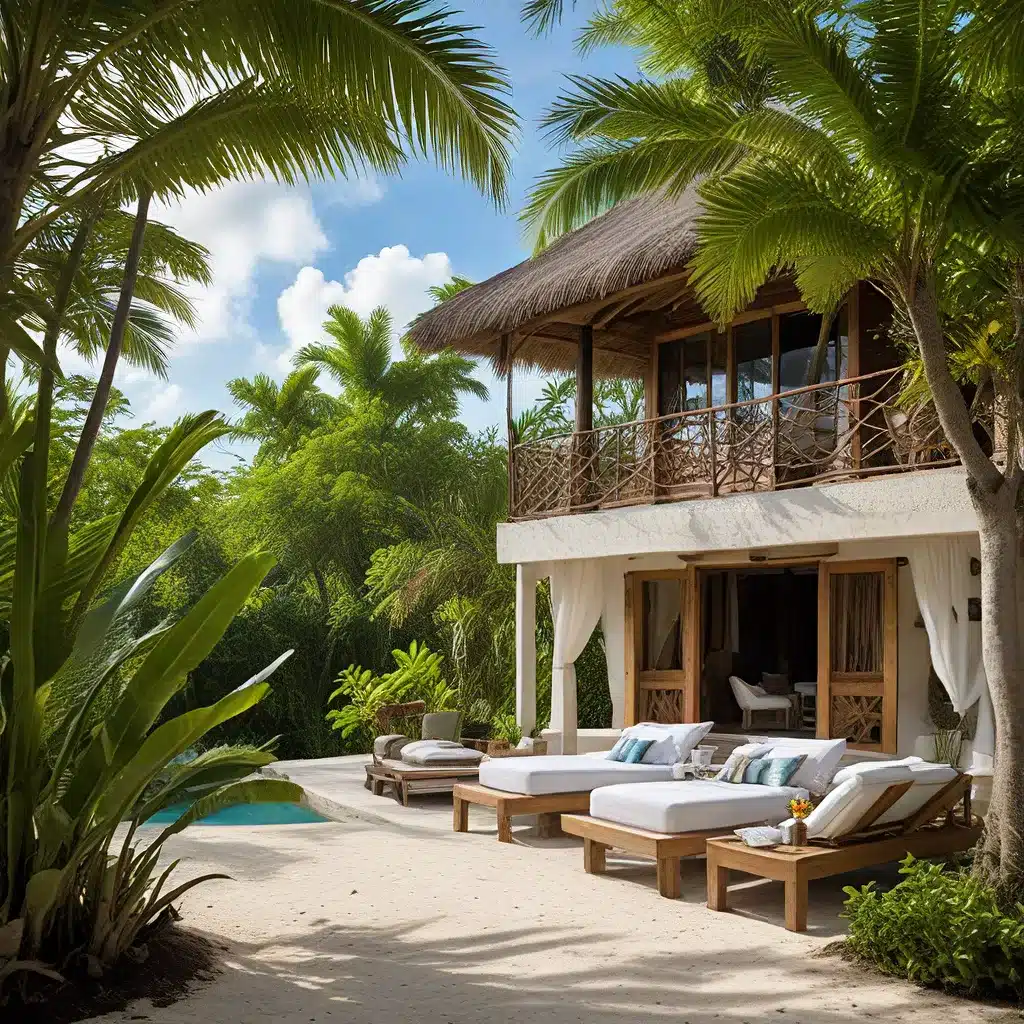
In the ever-evolving landscape of luxury travel, a remarkable shift is taking place – one that seamlessly blends eco-consciousness with the refined comforts travelers have come to expect. As the world collectively moves toward a more sustainable future, discerning globetrotters are seeking out destinations that not only cater to their desire for opulence but also demonstrate a deep commitment to environmental stewardship and cultural preservation.
Defining the Eco-Lodge Experience
At the forefront of this paradigm shift are eco-lodges – hospitality establishments that offer a unique blend of ecotourism and luxury. These properties are designed to minimize their environmental impact while providing guests with an immersive and transformative travel experience.
To be considered a true eco-lodge, a property must adhere to a set of well-defined principles. These include:
-
Sustainability: Eco-lodges prioritize the use of renewable energy sources, such as solar power and hydropower, as well as the implementation of water conservation strategies like rainwater harvesting.
-
Eco-Friendly Design: The architecture and construction of eco-lodges often incorporate local, natural materials like bamboo, reclaimed wood, and palm fronds to create a harmonious blend with the surrounding environment.
-
Community Engagement: Eco-lodges strive to empower local communities by hiring local staff, sourcing local produce, and actively supporting sustainable tourism development projects.
-
Education and Awareness: Guests at eco-lodges are often invited to participate in educational activities and initiatives that promote environmental conservation and cultural heritage preservation.
Eco-Luxe Destinations: Exploring the Caribbean
The Caribbean, renowned for its breathtaking natural landscapes and vibrant cultural tapestry, has emerged as a prime destination for eco-conscious luxury travelers. Let’s delve into some of the most exemplary eco-luxe properties that have set the standard for sustainable hospitality in the region.
Jungle Bay, Dominica
Nestled amidst the lush, jungle-covered mountains of Dominica, Jungle Bay is a top-rated eco-resort that has won numerous awards for its commitment to environmental protection and community involvement. Owned by local visionary Sam Raphael, Jungle Bay’s values are centered around community participation, environmental protection, and biodiversity conservation. The resort actively supports the local economy, provides meaningful employment, and raises awareness about Dominica’s threatened natural environments.
Origins Lodge, Costa Rica
In the heart of the Costa Rican jungle, Origins Lodge is a luxury escape that focuses on well-being and gastronomy, all while demonstrating an unwavering dedication to sustainable development practices. This property boasts an 100% ecological water system, and produces its own honey, fruits, vegetables, cheese, and milk on-site. The Origins Lodge team also plants roughly 500 native trees every year to aid reforestation and environmental conservation efforts.
Gili Lankanfushi, Maldives
For those seeking a romantic and eco-conscious getaway, Gili Lankanfushi in the Maldives should be on the radar. These sustainably built, rustic-luxe villas over crystal-clear turquoise waters are constructed from responsibly sourced local materials, including palm wood, bamboo, teak, and palm fronds. By staying at Gili Lankanfushi, guests can rest assured that they are contributing to the conservation of the natural environment.
Sustainable Hospitality Practices in Action
Beyond the Caribbean, there are numerous eco-luxe properties around the world that exemplify the best practices in sustainable hospitality. Let’s explore a few more standout examples:
Volcanoes Safaris, Rwanda and Uganda
The Volcanoes Safaris eco-lodges in Rwanda and Uganda offer an immersive experience for those seeking to get up close and personal with the mountain gorillas in their native Bwindi Impenetrable Forest habitat. The company’s initiatives, such as the Bwindi Bar – a tourism training institution for disadvantaged local youth – and partnerships with local communities, demonstrate a deep commitment to sustainable development and social responsibility.
Wolwedans Lodges, Namibia
Set amidst the otherworldly landscape of Namibia, the Wolwedans Lodges have a philosophy of balancing the planet, people, and profit. The team is passionate about sustainable development, ecotourism initiatives, and environmental education. Their Desert Academy is a hospitality training school for local Namibians, providing them with nationally and internationally recognized qualifications.
EcoCamp Patagonia, Chile
For hiking enthusiasts, the EcoCamp Patagonia in Chile’s Torres del Paine National Park offers an unparalleled sustainable experience. The property’s innovative design, which includes the use of solar energy, micro-hydro turbines, and composting toilets, serves as a blueprint for eco-friendly lodging in remote destinations.
Sustainable Hospitality Trends in 2024 and Beyond
As the eco-luxe movement continues to gain momentum, the hospitality industry is responding with a renewed focus on sustainable practices and responsible tourism. In 2024 and beyond, we can expect to see several key trends shaping the future of luxury travel:
-
Transparency and Accountability: Travelers are increasingly seeking out properties that openly disclose their sustainability policies and demonstrate measurable progress in reducing their environmental impact.
-
Immersive Experiences: Eco-lodges are going beyond merely showcasing their green credentials and are instead offering guests opportunities to actively participate in conservation efforts, learn from local communities, and connect with the natural world.
-
Culinary Sustainability: Luxury hotels and resorts are incorporating farm-to-table dining experiences, locally sourced ingredients, and zero-waste initiatives to reduce their carbon footprint and support local food systems.
-
Wellness and Regeneration: The rise of longevity-focused travel experiences, such as biohacking treatments and nature-based therapies, aligns with the eco-luxe ethos, offering guests a chance to rejuvenate while minimizing their environmental impact.
As the world continues to grapple with the pressing challenges of climate change and environmental degradation, the luxury hospitality industry is rising to the occasion, leading the way in the eco-luxe revolution. By choosing to stay at these sustainable, high-end destinations, discerning travelers can indulge in unparalleled experiences while making a positive impact on the communities and ecosystems they visit.
To explore more exceptional luxury hotel services and hospitality offerings that prioritize sustainability, be sure to visit the Chaconia Hotel website.


